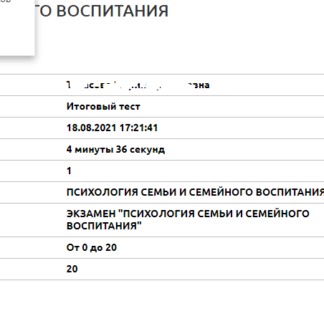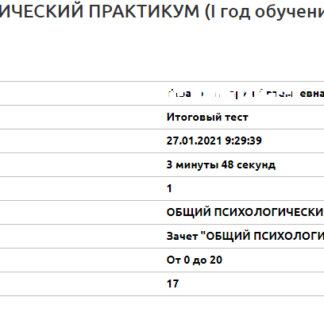Описание
I COURSE
CONTROL WORK N 8
FUTURE SIMPLE, CONSTRUCTION “GOING TO”,
SHALL AND WILL IN REQUESTS, OFFERS AND SUUGESTIONS
FUTURE CONTINUOUS
I. Agree and promise to do things as in the example.
Example: – Can you clean the window? – Sure, I’ll clean it.
1. Can you call me later? – Sure, … tonight. 2. – Can you repair the clock? – OK, … tomorrow. 3. Can you photo-copy it for me? – Sure, … tomorrow. 4. Can you type it for me? – Sure, … today.
II. Answer the questions as in the example. Begin answers with “I’ll probably…”, “I think I’ll…”, “I don’t think I’ll…”.
Example: What are you going to do tomorrow? (go to the country) – I’ll probably go to the country.
1. Where is John going to spend his summer vacations? (go to the mountains) 2. What are you going to do? (phone him) 3. What are your plans for tomorrow morning? (go shopping) 4. What is she going to do? (send a telegram) 5. Do you think they’ll come on time? (be late).
III. Complete these sentences using “going to” or “not going to” as in the example.
Example: watched Panorama last week, but …(not/next week) = I watched Panorama last week, but I’m not going to watch it next week.
1. Julia caught the 7.45 train yesterday, but … (not/tomorrow). 2. I didn’t see him Last month, but … (next month) 3. She bought some meat in that shop last Monday, but …(not/next time) 4. I didn’t travel by air the last time, but … (next time) 5. We stayed at home last night, but … (not/tonight).
IV. Make questions with “going to” as in the example.
Example: (when/leave) = When are you going to leave?
1. (how long/stay?) 2. (travel/by car?) 3. (visit us/alone?) 4. (where/stay?) 5. (How much/pay /tickets?)
V. Offer your help or services as in the example.
Example: Teacher’s carrying a lot of books. You say:” Shall I carry these books for you?”
1. You and your friend are leaving his house, the radio is still on. What will you say?
2. You are speaking to your friend, but the window is open and the street is noisy. What will you say? 3. Your friend can’t do a problem. You know the solution. What will you say?
3. Two men are trying to push the car. You are eager to help. What will you say? 5. Your friend is going to give a party, but he hasn’t got good records. What will you say?
I. Make requests with “WILL” as in the example.
Example: The salt is far from you. You ask your neighbour to help saying: “Will you pass me the salt, please?”
1. You are busy and can’t answer the phone. You ask your friend: … 2. The coffee is practically cold. You ask the waiter: … 3. You want to light a cigarette, but there isn’t a lighter. You ask your colleague: … 4. You are short of money. You ask your brother: … 5. You are thirsty. You ask your mother: …
II. Suggest to your friend with “SHALL” as in the example.
Example: play cards = Shall we play cards?
1. go to the movies. 2. spend the weekend in the country. 3. play a game of tennis. 4. have a swim. 5. watch the boxing match on TV.
III. Answer the questions in Future Continuous as in the example.
Example: Are you going to watch the match tomorrow? (work) = No, I’m not.
I’ll be working
1. Are you going to call him? (sleep) 2. Are you going to ask them now? (have their lunch) 3. Are you going to bed early? (go to a party) 4. Are they coming to the cinema tonight? (drive to the country) 5. Is he playing tennis with us tomorrow? (sit an exam).
IX. Paraphrase the sentences, using Future Continuous as in the example.
Example: We are going to London tomorrow = We’ll be going to London tomorrow.
1. We are catching the 8 o’clock train. 2. My brother is meeting me at the station. 3. They are staying at home. 4. We are arriving at Paddington Station at 10 pm. 4. My brother is staying overnight in London, but I’m not. 5. My father is picking me up at the station.



